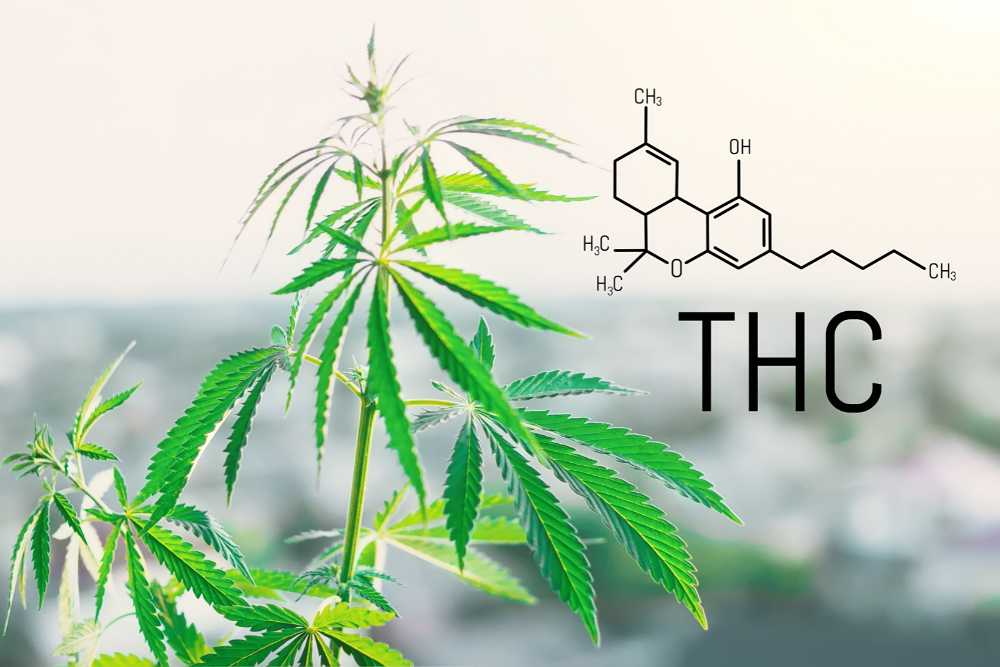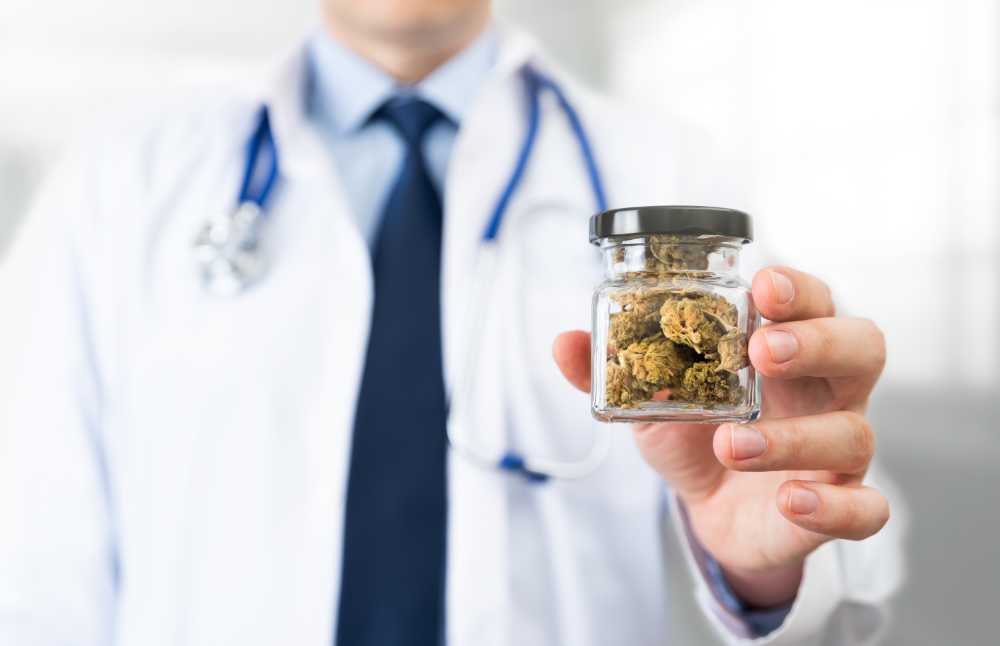We’re going to let you on a little secret that the cannabis industry doesn’t want you to know. In the swirling vortex of conversations among cannabis enthusiasts, a debate often arises — Delta 9 vs THC, which one reigns supreme? Plot twist: it’s a trick question. Delta 9 is THC, and THC is Delta 9!
Despite this fact, confusion still exists. Connoisseurs know this fact, but newcomers do not. This has led many down a rabbit hole of misinformation and misunderstanding. That’s why we’re here to clear everything up for you. Keep reading as we reveal the enigma behind the THC vs Delta 9 “debate” and clear the smoke about the confusion. We’ll also discuss why Delta 9 THC is essential for wellness enthusiasts eager to improve their mood or achieve personal transformation.
Delta 9 and THC: What’s the Difference?
There is no difference — Delta 9 is THC, and THC is Delta 9. When you hear the term THC, it refers to Delta 9 THC and vice versa. This is the main euphoric compound in cannabis.
Delta 9 goes by many names. You know it more commonly as THC. Other names you may know it by are Delta 9 THC, D9 THC, D9, or Delta 9 Tetrahydrocannabinol. Despite a family of THC analogs—like Delta 8 THC, Delta 10 THC, HHC, THCa, and THCv, just to name a few — THC primarily refers to our good old friend Delta 9 from hemp or marijuana.
Both hemp and marijuana cannabis plants contain Delta 9 THC. What’s the difference between these two plants?
- Hemp Plants. The hemp plant (Cannabis sativa) is a type of cannabis plant with high levels of non-euphoric Cannabidiol (CBD) and low amounts of euphoric THC (0.3% or less). CBD has potential health benefits that can impact your physical and emotional well-being. Many have incorporated CBD into their daily wellness routine as a result.
- Marijuana Plants. The marijuana plant is a type of cannabis plant with high amounts of THC. Concentrations can run as high as 30%! This cannabis plant is iconic for its bold stimulation. Current cannabis research shows that marijuana may have many therapeutic benefits. This has resulted in many states legalizing the medical use of marijuana.

Delta 9 and THC: Chemical Structure
Delta 9 THC’s chemical formula is C₂₁H₃₀O₂. The name “Delta 9” comes from the double bond on the ninth carbon chain. This molecular difference is what sets it apart in the cannabis cannabinoid family. The double bond is also what contributes to THC’s unique effects on the human body.
THC and Delta 9: Euphoric Potency
The euphoria associated with THC is the main reason why it’s celebrated and sought after. Delta 9 can bind to specific receptors in the brain. This triggers a cascade of neurotransmitters that can uniquely impact your emotional wellness. These experiences include strokes of pleasure, altered perception, and a deep sense of overall well-being for some. We’ll talk more about the mechanisms of THC biology later on.
Delta 9 and THC: Legal Considerations
Navigating the legal landscape of THC can be tricky. Hemp-derived products with Delta 9 THC are federally legal under the 2018 Farm Bill as long as they contain 0.3% THC or less. Conversely, marijuana-derived Delta 9 THC products fall into a grey area. They are federally illegal but permitted in certain state laws for medical or recreational use.
Read more: Is Delta 9 Synthetic?
Delta 9 vs THC – Effects on the Body
Delta 9 THC interacts with the endocannabinoid system (ECS), a complex network of cell-signaling receptors spread throughout the human body. The ECS plays a crucial role in maintaining homeostasis. It can influence everything from mood to appetite, mobility, and cognition.
Understanding this intricate relationship between THC and the ECS opens the doors for cannabis research, specifically into its therapeutic potential. Let’s examine this relationship further and what it can mean for you.
How Delta 9 (THC) Interacts with the Endocannabinoid System
THC’s interaction with the ECS showcases a complex interplay between chemistry and biology. This interaction can deeply influence your physical and emotional health. The ECS consists of two types of cannabinoid receptors located throughout your body: CB1 and CB2 receptors. CB1 receptors are in your central nervous system (CNS). CB2 receptors are in your peripheral nervous system (PNS).
THC primarily interacts with the CB1 receptors, which are heavily concentrated in the brain. These receptors play a significant role in neuromodulation. They affect pleasure, memory, thought, concentration, and discomfort perception. THC’s binding to these receptors triggers the psychoactive effects associated with cannabis.
Conversely, THC’s interaction with CB2 receptors, primarily those in your immune system, may influence your body’s reaction to irritants and physical discomfort. This hints at the potential therapeutic uses of cannabinoids.

Legal Status of Delta 9 and THC
The legal status of Delta 9 THC depends on the source. The 2018 Farm Bill (Agriculture Improvement Act) legalized hemp and hemp-derived cannabis products at the federal level as long as they contain 0.3% or less Delta 9 THC. The Farm Bill focuses explicitly on hemp. Marijuana-derived THC remains a controlled substance per federal law.
However, many states have carved out their own cannabis laws that run counter to federal law. This applies to both hemp and marijuana. When it comes to hemp plants, these state-specific laws might go against the Farm Bill. They might limit certain types of cannabinoids in hemp products. Additionally, they may cap or ban THC. Other states have legalized the consumption of marijuana. This allows for the medical and recreational use of cannabis despite federal laws.
Delta 9 and THC: Which is Right for You?
As we’ve already established, Delta 9 and THC are the same thing, so selecting the right product hinges on personal needs and preferences. Whether seeking inspiration, relief from chronic discomfort, or simply curious about the recreational side of cannabis, the choice of THC product — be it high in Delta 9 or not —should align with your health goals and lifestyle.
Read more: Delta 8 Vs Delta 9 THC: What’s The Difference?
Delta 9 and THC: Potential Benefits
Beyond the buzz, THC offers a spectrum of potential medical benefits. From providing discomfort relief for certain conditions to easing the burdens of a poor night’s sleep, THC’s potential therapeutic benefits are vast. Its euphoric effects can also offer profound mental relief and a sense of community for enthusiasts. Here are some of the main benefits of Delta 9 THC.
Delta 9’s Effects On Mood
THC’s interaction with the ECS often produces a happy, euphoric feeling. Its mood-boosting properties make THC a popular choice for individuals seeking natural mood enhancers.
Delta 9’s Effects on Cognition
THC stands out for its potential to boost creativity. This makes it highly sought after by those looking to enhance their creative endeavors. However, consuming more THC does not make you more creative. It’s important to not overdo it. If you do, you may feel temporary effects on short-term memory and judgment, underlining the importance of responsible consumption. Always consume THC within your limits to maximize benefits and minimize cognitive disruption.
Delta 9’s Effects on Appetite
Known as “the munchies,” THC’s ability to spike appetite is well-documented. This makes it a potential ally against poor appetite. Many proponents of medical cannabis have appreciated THC’s ability to help with conditions such as chemotherapy-induced nausea.
Delta 9’s Role in Promoting Relaxation
Delta 9 THC stands out not only for its euphoric properties but also for its ability to provide relaxation. Enthusiasts report a significant calming effect, which aids in unwinding after a long day. The stress-relieving aspects of Delta 9 make it a popular choice for those seeking natural, effective relaxation and mental well-being.

Safe Consumption Methods for Delta 9 and THC
Consuming Delta 9 THC safely is vital for ensuring a positive experience. Understanding the different consumption methods and their unique characteristics can help ensure a safe and enjoyable Delta 9 THC experience. Always prioritize safety by starting with small doses and selecting high-quality products from trusted sources. This will ensure you’re consuming a pure THC product free from potentially harmful chemicals. Let’s take a closer look at the most popular ways to consume Delta 9 THC.
Smoking THC
Smoking remains the most traditional method of consuming Delta 9 THC. It’s popular for its immediate effects, offering rapid relief and relaxation. Enjoy THC-rich flower by packing a pipe or bong or rolling a joint.
Vaping THC Products
Vaping is a more discreet alternative to smoking, as it heats the cannabis product without combustion. No smoke is produced. Instead, you’ll enjoy the aromatic vapors that are less harsh. Whether you’re interested in vaping Delta 9 oils or THC cartridges, ensuring you use quality devices and products is crucial for a safe experience.
Dabbing THC Concentrates
Dabbing is a specialized form of vaporization that involves highly concentrated cannabis extracts and a dab rig. This method delivers potent and quick effects, making it a favorite among experienced consumers. Knowing how to dab THC safely can help you understand the importance of temperature control and product quality.
Consuming THC-Infused Edibles
Edibles offer a discreet and long-lasting way to enjoy Delta 9 THC gummies. From THC-infused gummies to cannabis chocolates, these products provide effects that can last for several hours. The key to a safe experience with edibles is starting with a low dose and going slow. This is because the intensity of the effects can vary greatly.
Using THC Topicals
THC-infused topicals are an excellent option for those seeking localized relief without euphoria. Products like cannabis creams and THC lotions can provide targeted relief. While topicals are generally considered safe, choosing products from reputable sources ensures quality and effectiveness. Choose topicals that contain ingredients from all-natural, cruelty-free sources.
Other Methods of THC Consumption
The purported medical benefits of THC have increased the use of medical cannabis. Some methods might use specialized products that allow for the oral and intravenous administration of Delta 9 THC.
We strongly recommend that you consult with a licensed healthcare practitioner before attempting to use Delta 9 THC for any of its supposed medical benefits. Although results are anecdotal, they are not the norm. Your medical history, medications, and certain medical conditions you may or may not know you have will influence the potential therapeutic benefits of THC.
Delta 9 and THC: Potential Risks
Always be aware of how much THC you consume. While cannabis offers many potential benefits, overconsumption can lead to potential side effects. These mild and temporary side effects may include dry mouth, red eyes, lethargy, drowsiness, and, in some cases, nausea or extreme euphoria. Responsible consumption, understanding one’s limits, and starting with low doses are critical to mitigating these risks.
Can You Detect Delta 9 and THC in a Drug Test?
Yes, Delta 9 THC, the main euphoric compound in cannabis, is detectable on standard drug tests. These tests are specifically designed to identify the presence of Delta 9 THC in the body. Additionally, other cannabinoids that are THC analogs, such as Delta 8 THC and THCa (which also undergoes a chemical synthesis process that turns it into THC when heated), can also be detected by many of these tests due to their similar molecular structure. The sensitivity of drug tests to various THC compounds emphasizes the importance of being aware of the potential for detection, especially in environments that require regular drug screening.
Final Thoughts – Delta 9 vs THC [Clearing Up The Confusion]
At the end of the day, the Delta 9 vs THC debate boils down to semantics. Understanding that Delta 9 is THC and THC is Delta 9 demystifies much of the confusion, laying the groundwork for a more informed cannabis experience. Whether for recreational enjoyment, medicinal purposes, or simply exploring the many potential benefits of cannabis, it’s essential to approach THC with caution. Approach Delta 9 consumption with the proper knowledge, respect, and a sense of responsibility. Start low, go slow, and be mindful of your limits.
Remember, the world of cannabis is diverse, and offers something for almost everyone. Curious about Delta 9 and want to give it a try? Head to our Delta 9 shop and try our amazing hemp-derived THC gummies for an authentic experience!




